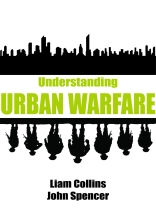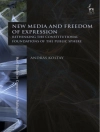No environment is more challenging for militaries than a city. No form of combat is more inherently destructive than urban warfare. And yet too often, militaries are both unprepared for the challenges of cities and unable to avoid being pulled into brutal urban fights.
In Understanding Urban Warfare, readers will gain more than just an appreciation of the unique challenges of urban warfare-from the limiting effects of three-dimensional terrain on many weapon systems and the multiplicity of enemy firing points on a city street to the overarching need to minimize civilian casualties and protect critical infrastructure and cultural property. The book presents readers with new ways to understand the distinctive characteristics of a variety of cities-megacities, global cities, feral cities, and even smart cities-and how those characteristics impact military operations in urban terrain.
Readers will also be provided first-hand accounts of some of the most relevant urban battles in modern history-the 1993 Battle of Mogadishu, the 2004 Second Battle of Fallujah in Iraq-plus the 2020 Battle of Shusha in the Second Nagorno-Karabakh War, and more-to illuminate trends and lessons to better understand urban warfare.
In an increasingly urban world, the future character of conflict will also be increasingly urban. This book sets out to understand that future.
Inhaltsverzeichnis
Introduction
Part I – Understanding the Operational Environment
Understanding the City
with Dr. David Kilcullen
Feral Cities
with Dr. Robert Norton
Global Cities
with Dr. Saskia Sassen
Smart Cities
with Dr. Sokwoo Rhee
Megacities and the Military
with Col. (ret.) Patrick Mahaney
Beneath the City
with Dr. Daphne Richemond-Barak
Part II – Operational Case Studies
The Battle of Ortona
with Major Jayson Geroux
The Battle of Mogadishu
with Col. (ret.) Lee Van Ardsdale, Col. (ret.) Larry Perino, and Command Sergeant Major (ret.) Kyle Lamb
The Second Battle of Fallujah
with Lt. Gen. James Rainey
Rebuilding Fallujah
with Col. (ret.) Leonard De Francisci
The Battle of Ramadi
with Dr. Louis Di Marco
The Battle of Sadr City
with Lt. Col. (ret.) Rob Mac Millan
The Battle of Mosul
with Maj. Gen. Roger Noble
The Battle of Marawi
with Dr. Charles Knight
The Battle of Shusha
with John Spencer
Conclusion












